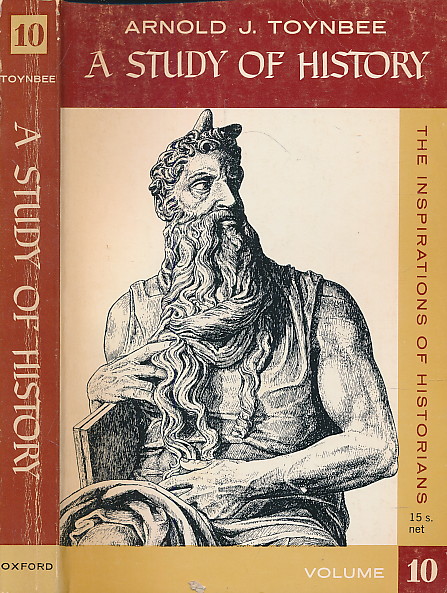A Study of History, Vol 10 : The Inspirations of Historians. A Note on Chronology
€30,00
Nema na zalihi
| Težina | 544 g |
|---|---|
| Format | 14 × 20 cm |
| Autor | |
| Izdavač | |
| Godina | 1962 |
| Broj stranica | 422 |
| Uvez | Meki |
| Stanje knjige | Vrlo dobro |
This volume is in effect the epilogue of the other nine volumes that went before it. The central theme of the series ends in the first nine volumes, and this one is to acknowledge the author’s debt to persons, books and works of art that helped him in preparing the text. There is also an autobiographical section on the inspirations that move historians to produce masterpieces of research. Readers would be left wondering at the varied sources of inspiration the author identified and assimilated to his heart’s content. Inspiration is not something that can be gulped in by anybody who happens to come along the way. It requires talent to identify whether what is offered to him is worthy of further investigation and pick up which one to discard. It also exposes the effects of changes in school curriculum effected in the first quarter of the previous century in England, which did away with Greek and Latin in favour of subjects which are more relevant to the pupil in his career oriented along the lines of science. Toynbee does not criticize the new approach as such, but thanks his good fortune for having had the opportunity to have an education that sprouted from the springs of classics. This deep knowledge of the ancient texts in their native tongues helped such scholars to live in two worlds simultaneously. Whenever such learned men experienced an event in the social or political life of the society of the present, they could immediately think of a similar incident in the lives of the Greek or Roman communities which had grabbed much of their attention in their academic lives. The ‘Acknowledgements’ section of the book stands out as a grand effort to express the author’s gratitude to the persons and books that made him what he was. The notion of expressing indebtedness is itself borrowed from the philosopher emperor Marcus Aurelius’ Meditations, and the very first book to which Toynbee expresses thanks is Edward Gibbon’s The Decline and Fall of the Roman Empire, though he has wrung Gibbon much in his references to the author in this, as well as other, volumes of the series. This book also includes a comprehensive index to volumes 7 to 10, which envelops a large fraction of the total number of pages.
